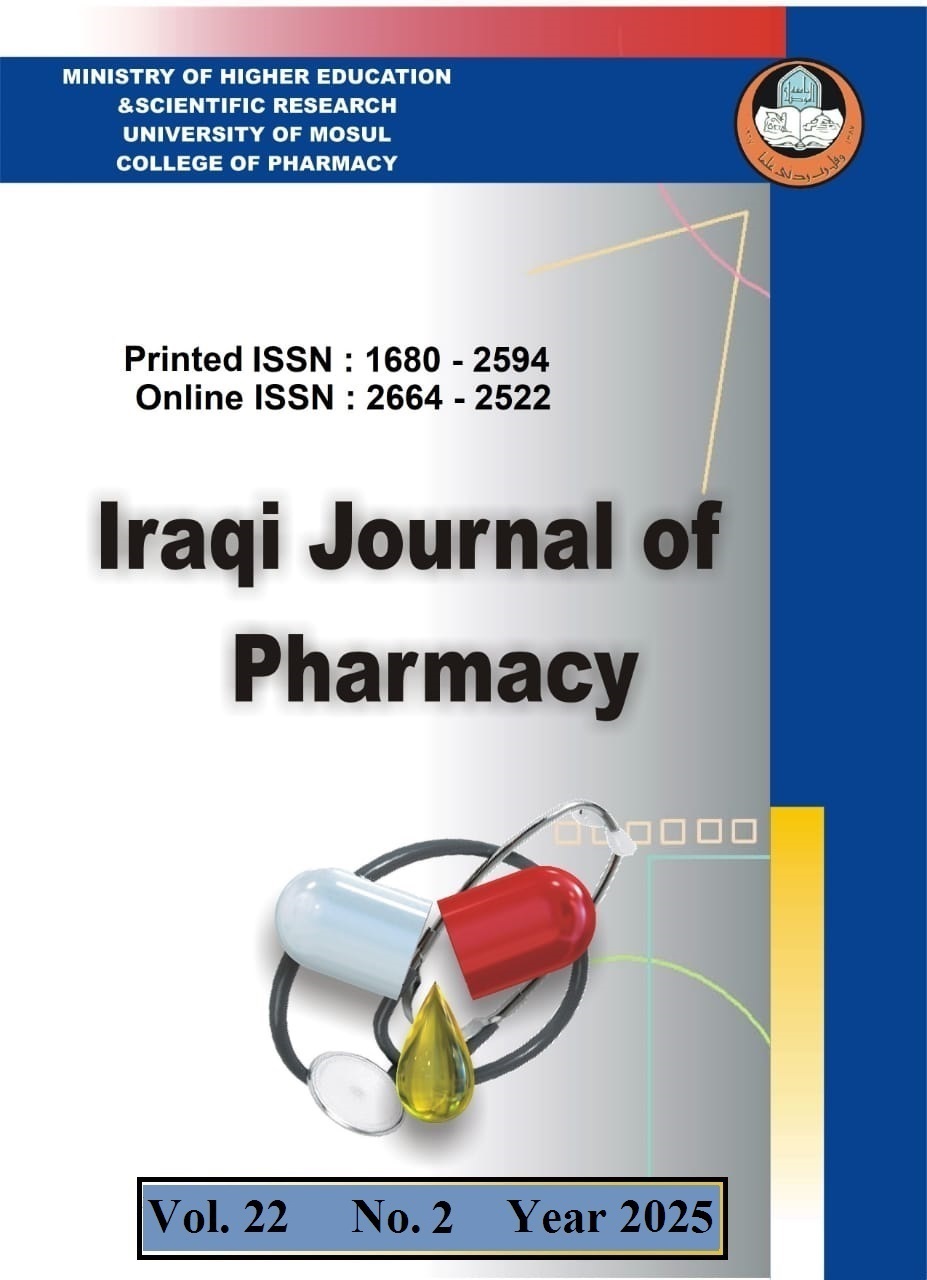Depression Among Breast Cancer Survivors in Duhok, Iraq: A Quantitative Analysis Using HADS
Abstract
Background and Aim: Breast cancer (BC) represents a significant warning to womens health in Iraq, accounting for 40% of all new cancer cases in 2022. The depression challenge faced by breast cancer survivors (BCSs) results from the severe emotional influence of diagnosis and various management modalities. This study aims to examine the prevalence of depression among Iraqi BCS and the factors affecting it. Material and Methods: A cross-sectional study was conducted with a population of 161 BCSs aged 60 years and younger attending Azadi Hematology-Oncology Center in Duhok City, Iraq. The data were collected between December 2024 and February 2025, including demographics, clinical features, and the Hospital Anxiety and Depression Scale (HADS) to assess depression. The final score for HADS ranges from (021 points), in which a higher score indicates a higher level of depression. Results: Out of 161 breast cancer survivors participating in the study, the mean age was 41.97 5.06 years, with the majority 118 (73.3%) aged between 40 and 60 years. Among the participants, 130 (80.7%) were married, and 127 (78.9%) were unemployed and housewives. Of the total population, 43 (26.7%) had depression, with a mean depression score of 7.67 4.54 which was predominantly observed among unemployed, housewives and long-term survivors (>70 months). Conclusion: The findings highlight that depression is a significant challenge for breast cancer survivors in Iraq. Being unemployed and housewives with low family monthly incomes could be independent contributors to that issue. Survivors for a longer time were found to have higher scores on the HADS, and that group of subjects may need further attention from the healthcare providers. As breast cancer survival rates rise, psychosocial support programs, psychological screening, and consultations are required among healthcare systems to minimize the risk for developing depression.
References
- Abu-Helalah M, Al-Hanaqta M, Alshraideh H, Abdulbaqi N, Hijazeen J. Quality of life and psychological well-being of breast cancer survivors in Jordan. Asian Pacific Journal of Cancer Prevention. 2014;15(14):5927-36.
- Al-Qazaz HK, Yahya NA, Ibrahim DK. Knowledge, awareness, and practice of breast self-examination among females in Mosul city, Iraq. Journal of cancer research and therapeutics. 2020;16(6):1376-81.
- lvarez-Pardo S, de Paz JA, Romero-Prez EM, Tnori-Tapia JM, Rendn-Delcid PA, Gonzlez-Bernal JJ, et al. Related factors with depression and anxiety in mastectomized women breast cancer survivors. International journal of environmental research and public health. 2023;20(4):2881.
- Alwan NA, Al-Diwan JK, Wafa'M A-A, Eliessa RA. Knowledge, attitude & practice towards breast cancer & breast self examination in Kirkuk University, Iraq. Asian Pacific Journal of Reproduction. 2012;1(4):308-11.
- Alwan NA. Breast cancer among Iraqi women: Preliminary findings from a regional comparative Breast Cancer Research Project. Journal of global oncology. 2016;2(5):255.
- AshingGiwa K, Rosales M, Lai L, Weitzel J. Depressive symptomatology among Latina breast cancer survivors. PsychoOncology. 2013;22(4):845-53.
- Bray F, Laversanne M, Sung H, Ferlay J, Siegel RL, Soerjomataram I, et al. Global cancer statistics 2022: GLOBOCAN estimates of incidence and mortality worldwide for 36 cancers in 185 countries. CA: a cancer journal for clinicians. 2024;74(3):229-63.
- Breidenbach C, Heidkamp P, Hiltrop K, Pfaff H, Enders A, Ernstmann N, et al. Prevalence and determinants of anxiety and depression in long-term breast cancer survivors. BMC psychiatry. 2022;22(1):101.
- Hinz A, Brhler E. Normative values for the Hospital Anxiety and Depression Scale (HADS) in the general German population. Journal of Psychosomatic Research. 2011;71(2):74-8.
- Inhestern L, Beierlein V, Bultmann JC, Mller B, Romer G, Koch U, et al. Anxiety and depression in working-age cancer survivors: a register-based study. BMC cancer. 2017;17:1-8.
- Jassim GA, Whitford DL. Quality of life of Bahraini women with breast cancer: a cross sectional study. BMC cancer. 2013;13:1-14.
- Kim SH, Son BH, Hwang SY, Han W, Yang J-H, Lee S, et al. Fatigue and depression in disease-free breast cancer survivors: prevalence, correlates, and association with quality of life. Journal of pain and symptom management. 2008;35(6):644-55.
- Mehnert A, Koch U. Psychological comorbidity and health-related quality of life and its association with awareness, utilization, and need for psychosocial support in a cancer register-based sample of long-term breast cancer survivors. Journal of psychosomatic research. 2008;64(4):383-91.
- Niedzwiedz CL, Knifton L, Robb KA, Katikireddi SV, Smith DJ. Depression and anxiety among people living with and beyond cancer: a growing clinical and research priority. BMC cancer. 2019;19:1-8.
- Reyes-Gibby CC, Anderson KO, Morrow PK, Shete S, Hassan S. Depressive symptoms and health-related quality of life in breast cancer survivors. Journal of women's health. 2012;21(3):311-8.
- Rojas K, Stuckey A. Breast cancer epidemiology and risk factors. Clinical obstetrics and gynecology. 2016;59(4):651-72.
- Taherdoost H. Validity and reliability of the research instrument; how to test the validation of a questionnaire/survey in a research. International Journal of Academic Research in Management (IJARM). 2016;5.
- Taylor M, Westvold SJ, Long JB, Hyslop T, Wang S-Y, Cecchini M, et al. Personalized risk assessment of new onset depression in long-term cancer survivors. American Society of Clinical Oncology; 2024.
- Tsang S, Royse CF, Terkawi AS. Guidelines for developing, translating, and validating a questionnaire in perioperative and pain medicine. Saudi journal of anaesthesia. 2017;11(Suppl 1):S80-S9.
- Tsaras K, Papathanasiou IV, Mitsi D, Veneti A, Kelesi M, Zyga S, et al. Assessment of depression and anxiety in breast cancer patients: prevalence and associated factors. Asian Pacific journal of cancer prevention: APJCP. 2018;19(6):1661.
- Zigmond AS, Snaith RP. The hospital anxiety and depression scale. Acta psychiatrica scandinavica. 1983;67(6):361-70.








